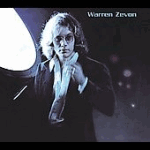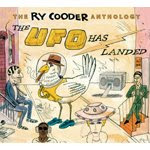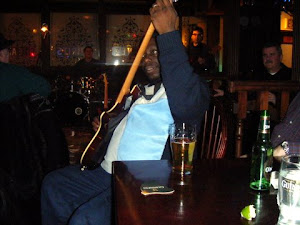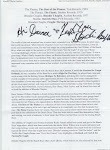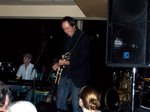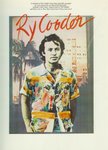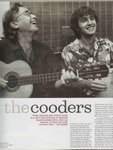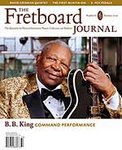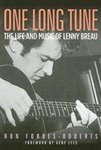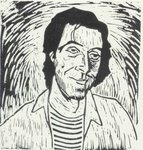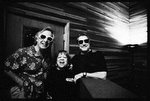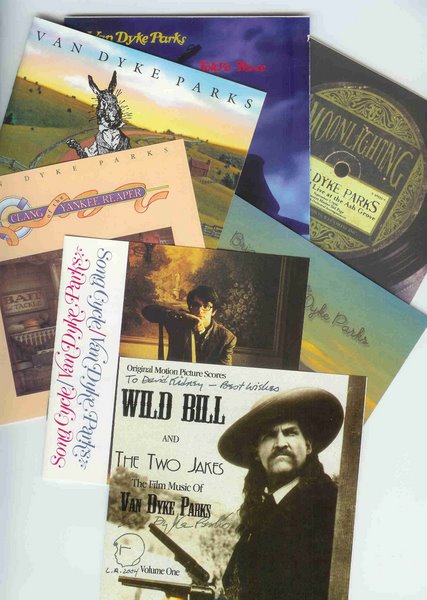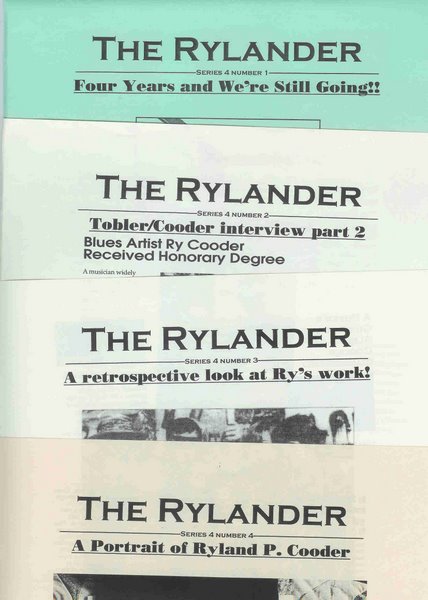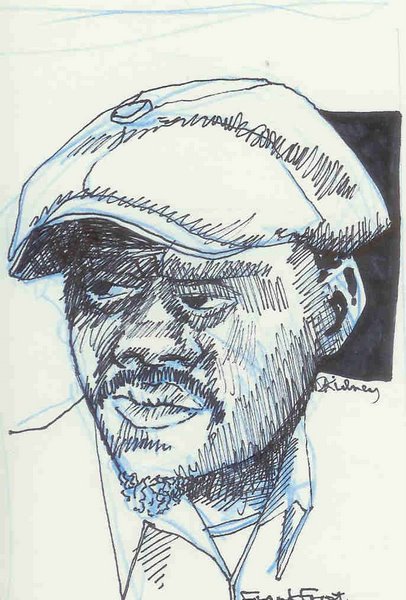by Alec Wilkinson
I can’t write briefly about Ry Cooder, the virtuoso guitarist who has a new record, “Pull Up Some Dust and Sit Down.” Admiration for his accomplishments, his singularity, and the longevity and diversity of his career intervene. For more than forty years, since Cooder released his first record, “Ry Cooder,” in 1970, he has been a musician other musicians have followed closely, and no popular musician has a broader or deeper catalog. He has played songs so simple that they are hardly songs, and songs so complex that they would tax, if not overwhelm, the capacities of most lauded guitarists. He had quit making rock ‘n’ roll records sixteen years before Rolling Stone, in 2003, named him the 8th greatest guitarist on their list of the 100 Greatest Guitarists of All Time (three of the seven ahead of him are dead guys). Even so, his influence has been felt more than his records have been heard, with perhaps one exception: the group of elderly Cuban musicians whom he assembled and recorded in 1997 and called the Buena Vista Social Club.
Cooder’s guitar playing is expressive, elegant, and rhythmically intricate. It frequently has a pressured attack that he has described as having the feel of “some kind of steam device gone out of control.” His sense of phrasing was partly imprinted in his childhood by a record of brass music made by a group of African-American men who found instruments in a field left by Civil War soldiers during a retreat, and played them according to their own inclinations. If you wonder what his sensibility sounds like when applied to rock ‘n’ roll—one version of it anyway—the most widely known example I can think of comes from the period when Cooder had been hired to augment the Rolling Stones during the recording of “Let It Bleed.” He was playing by himself in the studio, goofing around with some changes, when Mick Jagger danced over and said, How do you do that? You tune the E string down to D, place your fingers there, and pull them off quickly, that’s very good. Keith, perhaps you should see this. And before long, the Rolling Stones were collecting royalties for “Honky Tonk Women,” which sounds precisely like a Ry Cooder song and absolutely nothing like any other song ever produced by the Rolling Stones in more than forty years. According to Richards in his recent autobiography, Cooder showed him the open G tuning which became his mainstay and accounts for the full-bodied chordal declarations that characterize songs such as “Gimme Shelter,” “Jumpin’ Jack Flash,” “Start Me Up,” and “Brown Sugar.” The most succinct way I can think of to describe the latticed style that Keith Richards says he has sought to achieve with Ron Wood is to say that for thirty-five years the Stones have been trying to do with four hands what Cooder can do with two.
Cooder might have been heard more widely except that he doesn’t like to perform. He doesn’t care for being watched so closely or having to entertain. “I couldn’t go out there anymore and say, ‘Ladies and gentlemen, and especially you ladies,’” he says. The people who like the applause should have it, he feels, but he says he doesn’t care for it. After performing, he used to feel like a withered balloon under a chair on the day after a child’s birthday party. He grew up in recording studios and is more at home there, privately trying to capture something ephemeral and elusive—“the big note,” a friend of his has said, the one that makes all the other concerns fall away. In the last few years, he has toured briefly in Europe and Japan and Australia, with his son, Joachim, playing drums and Nick Lowe playing bass—but not in North America.
For most of Cooder’s career he arranged songs from other writers and various historical sources ranging from Depression era songs, to Bix Beiderbecke’s repertoire, to folk and drifter and cowboy songs, miner’s songs, work songs, surf songs, jukebox songs, calypsos, roadhouse and dance hall songs, protest songs, and songs from the registry of rhythm and blues—but in 2003 he began recording albums of his own material. (My own introductory list of highlights from Cooder’s earlier period: “Great Dreams from Heaven,” “How Can you Keep on Movin’,” “Get Rhythm,” which has a fantastic video, “In a Mist,” “Ditty Wah Ditty,” “Smack Dab in the Middle,” “Tattler,” “France Chance,” “Little Sister,” “Dark at the End of the Street,” “Maria Elena,” “I Think It’s Going to Work Out Fine,” “The Very Thing That Makes You Rich,” and I’ll stop, but I could keep going happily.) The recent records formed a kind of Los Angeles trilogy. The first, “Chavez Ravine.” was inspired by black-and-white photographs of the hill town community inhabited by Mexicans and destroyed to build Dodgers Stadium. The second, “My Name is Buddy,” concerned a red cat named Buddy and his adventures during the most virulent period of anti-workingman and anti-communist feeling. One of the songs he sings is “Red Cat Till I Die.” The third record, “I, Flathead,” is a desert narrative about salt-flat drag racers and an alien racer entangled in a complicated moral dilemma.
What “Pull Up Some Dust and Sit Down” shares with them is an indignation over the economic and ethical disparities of American life and the destructive and scoundrely meanness of the privileges given to the rich. “No Banker Left Behind,” ridicules the considerations extended to the prosperous men and women who grabbed everything not nailed down during the last few years. The norteño “El Corrido de Jesse James,” a lampoon of the notion of honor among thieves, has Jesse James, sitting around in heaven, wishing to have his forty-four returned in order to persuade the bankers to “put that bonus money back where it belongs.” In the sleek country rocker “Quicksand,” a Mexican man describes a border crossing during which the guide for his group leaves in the middle of the night, and the man who takes over dies the next day in the sun. “Then a Dodge Ram truck drove down on us / Said I’m your Arizona vigilante man / I’m here to say, You ain’t welcome in Yuma / I’m takin’ you out as hard as I can.”
“Dirty Chateau” is an exchange between a man with a big house and inconsiderate habits and his maid whose people were farm workers. In the reggae shaded “Humpty Dumpty World,” God deplores the insubstantiality of his creation, with its rabble-rousing politicians and craven television commentators. “I thought I had built upon a solid rock / but it’s just a Humpty Dumpty World,” he sings.
“Baby Joined the Army” is a haunting, mesmeric lament by a young man whose simple girlfriend signs up to become a solider. She’s tired of her town and was lured by the assurance that “If I get killed in battle, I still get paid.”
In the trancy moan, “Lord Tell Me Why” a baffled, older working man wonders why, “A white man ain’t worth nothing in this world no more.” And “John Lee Hooker for President” is a hallucinated description by John Lee Hooker of his Presidency, where all the Supreme Court Justices are “fine looking women,” and mealy-mouthed corruption is not tolerated. “I don’t care if you’re Republican or Democratic / Under John Lee Hooker everything’s going to be copastatic”
“I Want My Crown,” sounds cousin-like to some of Cooder’s earlier recordings, among them “Billy the Kid,” and “Money Honey” from “Into the Purple Valley,” released in 1972, in which unlikely ensembles of stringed instruments were invoked more or less the way horn parts usually are. “Republicans changed the lock on the heavenly door / keys to the kingdom don’t fit no more,” and “If there’s a god / I think he’s got to bottle up and go,” Cooder sings. In the twitchy guitar and mandolin crossfire, you can hear a kind of wild and snaky joy, a rarefied strut that seems to be the song’s throbbing heart.
August 30, 2011
Read more http://www.newyorker.com/online/blogs/newsdesk/2011/08/ry-cooder-pull-up-some-dust-and-sit-down.html#ixzz1kPPJFL2c
Tuesday, January 24, 2012
Friday, January 13, 2012
Andy White at...the Pearl Company

Masterpiece
She's a masterpiece
after all this time
she's gone...
He didn't sing it until about four songs into the second set, but when Andy White began "If I Catch You Crying" last night I watched his hands. I've been stuck on this song since I first heard it on Blackie & the Rodeo Kings BARK album. It's essentially C, F, G...with a "minor fall, and a major lift" but it's intoxicating!
When Andy last played The Pearl Company with Stephen Fearing, I was not able to see them as I had tickets for Jackson Browne at Hamilton Place. Sometimes you have to make these decisions. Remember that night when, in various venues around town, we had to choose from Bill Bourne, Selena Gomez and Tony Bird? Fortunately Andy White made this return engagement. Too bad the crowds that showed up for Valdy didn't appear last night. The twenty or thirty who did make it are glad they did.
Intimate? You bet.
White reminded me of Billy Bragg in his approach both musically and lyrically. One man and a guitar, singing about the politics of government and love. There was a bit of punk rock in the way Andy played that guitar, and a bit of the Guthrie-esque folksinger in the audience singalongs. One thing about the people who go to the Pearl...they're not afraid to sing!

White wore a military-style jacket over a "Where's Waldo" white and black striped shirt. The woman behind me said, "Oh, he's changed his clothes. I liked the scarf better. That shirt shows his tummy!" She'd been there early for the sound check, I think. He quickly covered his 'tummy' with his 12 string guitar, ramped up the echo and fingerpicked the intro for "Looking for James Joyce's Grave".
I recalled my visit to Ireland, sitting at Joyce's desk in his study, or having my photo taken next to the Joyce statue off O'Connell Street. As White sang four or five songs about Ireland it brought back memories of taking the train from Drogheda to Belfast, of martello towers, of the best fish & chips I've ever had, and the pubs. The dark, stained walls and heavy Guinness-soaked atmosphere of the pubs and the loud rock music provided by the local bands.
One complaint I had about last night was the audio mix, usually crisp and clean, it was hard to make out the words. It wasn't White brogue, but either I was sitting too close to the front, or Andy was leaning too far into the mic. My friend Frank remarked about the same thing. And maybe, just maybe, White could go a bit easier on the effects that he pushes his guitar through. While providing a fuller sound, it did tend to muddy things a touch. But these slight problems are nothing compared to the intimacy that is achieved at the Pearl.
White alternated stories with songs and, in fact, many of his songs are stories. "Italian Girls on Mopeds" is a perfect example. "When I Come Back" (from his most recent CD songwriter) touched me, as he sang about "hear[ing] the Beatles for the first time, a hard day's night in '64". I recall well the day I heard the Beatles for the first time, and then I remembered the Hard Day's Night coffeeshop in Ardee. All these memories from 40 or more years flooding together.

That's what songwriters do, they speak to you of shared moments in time and experience. Whether we come from the same geographical area or time zone, or era we share so much.
Music can reach deep into our souls. Had coffee with a guitarist friend who told me that she sold her most recent CD to a woman who played it for her autistic sons. She said it had an amazing impact, it's the only thing they'll listen to. It comes them down, relaxes them. She bought 20 more copies, to give to people at the Autism Society. The principal of their school is playing it over the PA every morning. "Music hath charms to sooth the savage breast". It can also raise our consciousness, bring us to tears, unite us to fight for a common cause...
That's why the Pearl Company, and all who sail in her, are so important.
Bravo!
Tuesday, January 10, 2012
The Pearl Company, again
 Friday night my wife and I had dinner at The Bread Bar (an 'earth to table' restaurant on Locke Street) and then went down to The Pearl Company to watch Valdy, a Canadian legend! I call him a legend, but earlier on Friday afternoon Ben Babchishin (a film-maker from out west) had told me the story of pitching a film to the people at Bravo TV. They liked his hour long portrait of Mae Moore and Lester Quitzau and thought it might be the start of a series. He said, "What about Valdy?" The Bravo woman said, "WHO?"
Friday night my wife and I had dinner at The Bread Bar (an 'earth to table' restaurant on Locke Street) and then went down to The Pearl Company to watch Valdy, a Canadian legend! I call him a legend, but earlier on Friday afternoon Ben Babchishin (a film-maker from out west) had told me the story of pitching a film to the people at Bravo TV. They liked his hour long portrait of Mae Moore and Lester Quitzau and thought it might be the start of a series. He said, "What about Valdy?" The Bravo woman said, "WHO?"In fact when I told a friend that we were going to see Valdy he said, "Is he still around? He only had that one song didn't he?" "Play me a rock and roll song or don't play me no song at all..." is the song he was thinking of. All of us folksingers (and wannabe folksingers) knew and loved that one. Some of us did "stay home with a big case of beer" but Valdy soldiered on and released a string of successful songs, "Simple Life," "A Good Song," "Peter and Lou," and an album that got played more than any other (except maybe Raffi) in our household Valdy's Kids Record.
More recently he has released a couple of country flavoured CDs with Gary Fjellgaard, and a double disc entitled Viva Valdy! Live at Last. That's how he was on Friday...live at last! Just Valdy and his old Martin guitar playing most of the hits and a wide selection of tunes from his long career, including a handful from a new album not yet released!
 You could purchase a download card for $10 that allowed you to dump this new collection onto your iPod (more about that later) or you could buy the Viva Valdy set for $20. I think there were even CDs of that infamous kids' record available!
You could purchase a download card for $10 that allowed you to dump this new collection onto your iPod (more about that later) or you could buy the Viva Valdy set for $20. I think there were even CDs of that infamous kids' record available!Valdy is an energetic performer, always moving, kinetic. His guitar playing is superlative alternately jazzy and folky, and that '60s Martin rings beautifully, but it's his voice that stands out, this guy can sing.
Someone once quipped that Valdy could sing the Muskoka phonebook and make it entertaining, and in some instances the other night that's essentiallt what he did, if he forgot a lyric he just kept right on going making things up, or continuing a narrative right through the chords. It was a fine example of the folk process in action. Just like Pete Seeger, who doesn't feel successful unless everybody's singing, Valdy led the room in some old folk songs, and in the choruses of his own classic tunes. He encouraged audience participation from the start by quoting Chilliwack's Bill Henderson "if there's no audience / there just ain't no show!" We even got to sing Christmas songs since it was Christmas Eve in the Orthodox calendar! Valdy's last chance to sing his Christmas repertoire 'til next year!
Between sets Valdy moved to the lobby/gallery/merch table, poured himself a cup of java and signed CDs and chatted for the whole break. After that brief respite he again took the stage to do it all over again.
After the show I rushed home to download the new album, only to find that the promised link was nowhere to be found. I looked around his website
Tomorrow night...Andy White...at The Pearl Company!
Subscribe to:
Posts (Atom)
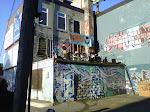
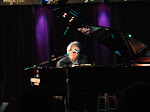






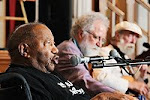
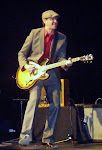
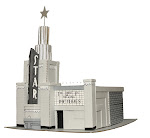


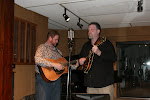.jpg)
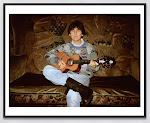
.jpg)

